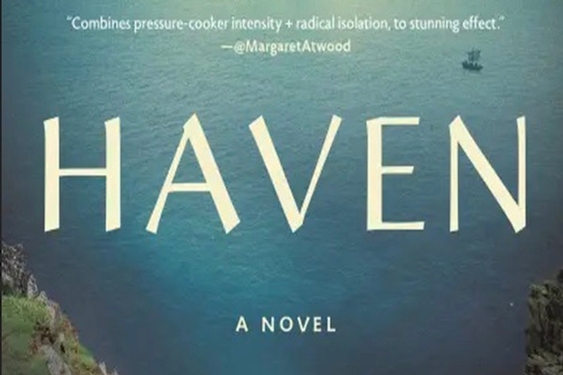Have you ever heard of Failure to Launch syndrome? Or maybe you’ve heard its other name, Peter Pan syndrome? You haven’t? Well, I think you’ll get the gist of it pretty quickly after a few insights. The name pretty much says it all!
First and foremost, this is not a clinically diagnosable health issue like diabetes or depression. It is, however, a pattern of behavior with markable “symptoms” that can be addressed. From a book world standpoint, it’s intriguing because the idea originated with noteworthy author J. M. Barrie’s book and character, Peter Pan. Peter is the quintessential boy who never grew up, trapped forever in a seemingly idyllic realm past “the second star to the right and straight on till morning” called Neverland. There, he never has to deal with hardships that come with age, or, as it has been coined in our modern times, “adulting.”
Symptoms of Failure to Launch syndrome vary but can include a lack of ambition (think not wanting to get a job), a reluctance to make decisions, a fear of commitment, and a resistance to making and sticking to plans. Apparently, it’s more common in males (I see you, Peter), but there are plenty of women who struggle with it, too.
The books below highlight characters of all ages, both sexes, and living across various timelines. You’ll see some names you may recognize from classic literature, some you may recognize from recent must-read lists, and some that are more obscure. All of these people can’t — or learn to — mature in some way, and their journeys — or lack thereof — make for extremely interesting books.
'Eleanor Oliphant Is Completely Fine' by Gail Honeyman
We’re starting off with a strange woman, certainly, but a lovable one nonetheless. In Gail Honeyman’s successful new(ish) novel, the protagonist avoids social interaction whenever possible, and when she does speak with others, she has zero filter. The only person she talks to regularly is her mother, which inhibits her from meeting others. Dealing with social anxiety and at times vaguely delusional, Eleanor’s inner struggle shows itself on the outside via an attention-grabbing scar on her face.
Through the gift of therapy, Eleanor becomes more honest with herself, revealing the horrific tragedy of her youth and its impact on her current life, which opens up doors that have been slammed shut for many years. It will be a difficult and lengthy road to leave all her nightmares behind, but watching Eleanor progress — from a loner living with ghosts of the past to a participatory member of the community with friends and moments of happiness — was a wonderful and emotional journey. Readers can’t help but love Eleanor and root for her healing and happiness.
'Great Expectations' by Charles Dickens
Widely considered one the greatest books of all time, "Great Expectations" features an unforgettable figure: the jilted bride who sits day after day in her fruitless wedding dress, unable to move on from her distressing past and the dreams that died on that fateful day. This is Miss Havisham, and though she isn’t the main character, she dominates this tome of a novel.
The actual protagonist, Pip, has these thoughts when he encounters the woman at hand: “I saw that the bride within the bridal dress had withered like the dress, and like the flowers, and had no brightness left but the brightness of her sunken eyes. I saw that the dress had been put upon the rounded figure of a young woman, and that the figure upon which it now hung loose had shrunk to skin and bone. Once, I had been taken to see some ghastly waxwork at the Fair, representing I know not what impossible personage lying in state.” The phrase “lying in state” perfectly sums up both Failure to Launch syndrome and this woman who has brandished her lost youth as her entire identity.
'Paper Castles' by B. Fox
James Brookes aches with disappointment in himself and the world around him. Five years previously, cancer claimed his beloved mother. He’s lost his job and must return to the family home where his father still mourns. It seems he can’t do anything right, and his father is quick to point that out to him. James had dreams, but they were just that; he was unable to make them anything more.
"Paper Castles" by B. Fox is the story of one young man who feels torn between his fanciful dreams and the need to pay off bills. He is struggling to find his own identity while facing a harder-than-ever reality when he stumbles across a new coffee shop, a wayward girl with a talent for storytelling, and his own unresolved past. Not all dreams come true, and sometimes maturing and moving forward from grief is nearly impossible. This Peter Pan wants to fly but can’t seem to get off the ground.
'Ugly Girl, Sweet Nectar' by D.D. Kaye
Alessa, the main character in this unconventional book, is an unavoidably sympathetic person. She’s the caretaker for her difficult mother, who is suffering from the volatile symptoms of alcohol dementia. She’s been a single mom to three daughters, two of whom still live at home, and she has been reclusive, lonely and destructively self-deprecating for way too long. She’s tired and sad and trying her best, and she decides that it’s time to step forward, take some risks, and try to build a better life for herself.
Sometimes the child Alessa seems more mature than the adult Alessa who is trying so hard to reinvent herself. As a girl she faced the appalling situations she found herself in with precocious clear-headedness, committed to day-to-day survival and took care of her sister. As an adult, however, she makes some of the same mistakes she saw her parents make, a twist of growing up that isn’t very grown-up at all. The universe seems to be sending advice, but she doesn’t want to listen to a word of it; can she become the woman she’s capable of being? Disclaimer: "Ugly Girl, Sweet Nectar" is intended for adult readers and includes some violence, light swearing and some sexual situations.
'Brideshead Revisited' by Evelyn Waugh
Sebastian Flyte is a tragic character in this book so richly imagined that it’s been reinvented for the screen many times with yet another BBC remake planned for 2022. Sebastian isn’t the main character — that honor belongs to Charles — but the former makes such an impression on the latter that it lives on with readers decades later. The two meet at Oxford college in England, and Sebastian seems utterly charming though admittedly devoid of responsibility and gravitas while blissfully ignorant of reality.
He never really grows out of his college state, though; in fact, even in college he totes around a beloved teddy bear he’s named Aloysius, so one might argue that he’s stunted in an even younger age. As he gets older in years, he gets no older in wisdom and tries to alleviate his increasing torments with alcohol. Eventually, he dies in destitution from his addiction, and Charles remains haunted by the memories of his old friend. Sebastian seems eerily reminiscent of what Peter Pan could have become if he’d been plucked from Neverland and placed into the circumstances of this novel instead.
'Lost Boy: The True Story of Captain Hook' by Christina Henry
“There is one version of my story that everyone knows. And then there is the truth. This is how it happened. How I went from being Peter Pan’s first — and favorite — lost boy to his greatest enemy.” This is a dark and deadly retelling of the tale of the boy who never grew up himself, and the result is both heartbreaking and stunning to read. You’ve probably already guessed that the narrator of the above quote is that infamous and nefarious villain Captain Hook.
In her creative and colorful take on the classic, Christina Henry emphasizes the more sinister undertones of J. M. Barrie’s original work. In her mind, Peter’s childishness was only the beginning of his issues, and his fantastical Neverland, laced with pirates and devilish mermaids, isn’t at all your ideal vacation spot. This Peter is full of lies and cruel tricks up his sleeves that he plays on his lost boys, including our narrator, young Jamie. Peter’s horrific version of playfulness is the reason that Jamie is doomed to become Captain Hook, the villain we all know him to be. This book isn’t Disney, and it isn’t for the faint of heart, but it is some finely crafted storytelling.
'A Confederacy of Dunces' by John Kennedy Toole
At the core of this zany, irreverent, and at times completely hilarious novel by the one-time writer John Kennedy Toole lies Ignatius J. Reilly, a man who thinks highly of himself and his own potential but shows none of it in actuality. “In addition, I am at the moment writing a lengthy indictment against our century. When my brain begins to reel from my literary labors, I make an occasional cheese dip.”
Ignatius is a 30-year-old man-child who unabashedly lives with his mother in New Orleans and seems to have no proclivity toward personal hygiene or personal betterment. He rails against anyone and everything, all while childishly taking advantage of opportunities to do absolutely nothing meaningful to society; in fact, he prides himself on his detachment from society. His comic misadventures scarcely disguise the tragedy of his wasted and wanton life. Ignatius serves as prime motivation to resist Failure to Launch syndrome and join the Eleanor Oliphants of the world in an attempt to challenge oneself to reenter reality, difficult though it may be.
(BookTrib.com is the lifestyle destination for book lovers, where articles and books are paired together to create dynamic content that goes beyond traditional book reviews.)
©2021 BookTrib. Visit at booktrib.com. Distributed by Tribune Content Agency, LLC.




